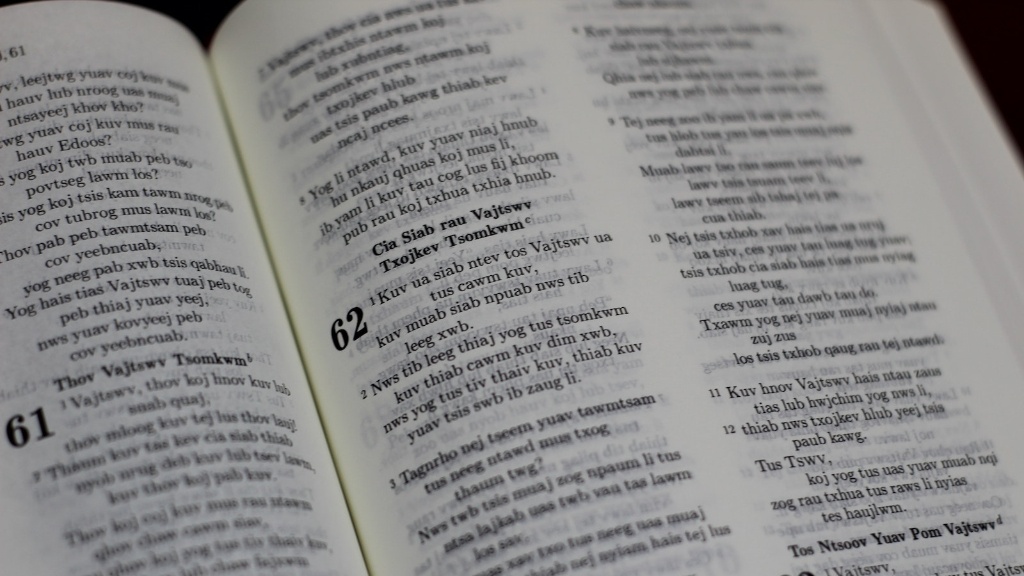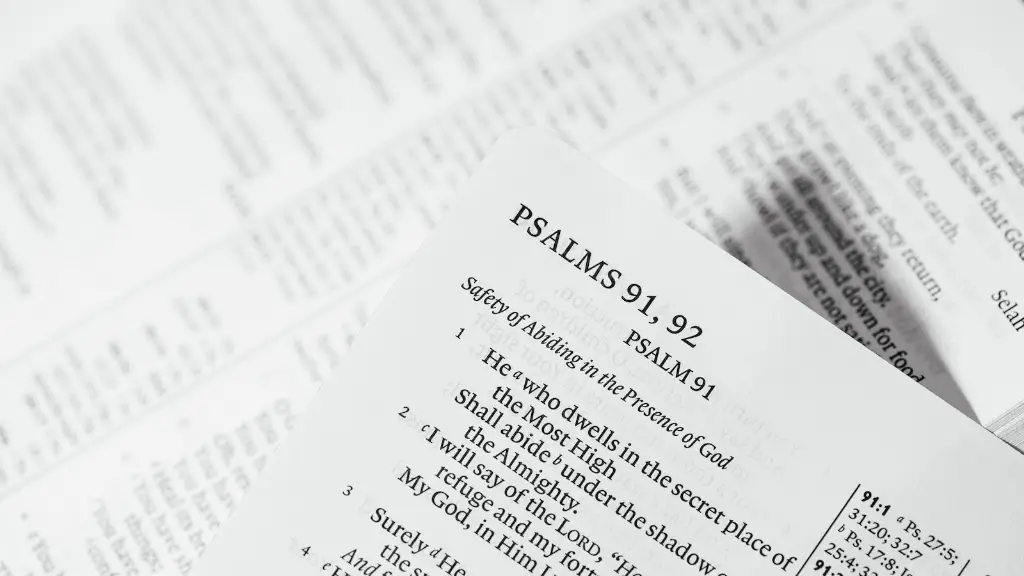The Bible has a lot to say about pastors and politics. In the Old Testament, we see that the people of Israel were led by both a political leader (the king) and a spiritual leader (the prophets). In the New Testament, we see that Jesus was both a political and a spiritual leader. And in the book of Revelation, we see that the ultimate leader will be both political and spiritual.
So what does the Bible say about pastors and politics? First and foremost, it says that we are to be subject to the authorities. “Let every person be subject to the governing authorities. For there is no authority except from God, and those that exist have been instituted by God” (Romans 13:1). But that doesn’t mean that we should blindly follow our leaders. We are to pray for them, and we are to speak truth to them. “I urge, then, first of all, that petitions, prayers, intercession and thanksgiving be made for all people— for kings and all those in authority, that we may live peaceful and quiet lives in all godliness and holiness” (1 Timothy 2:1-2).
The Bible speaks highly of pastors and elders who recognize the importance of civic responsibility and seek to engage the political process for the common good. At the same time, the Bible warns against those who would use their positions of influence to advance their own agenda or gain temporal power.
What is the biblical view about politics?
The Bible does not shy away from addressing political issues and, in fact, offers some guidance on how Christians should relate to government. In Romans 13:1, Paul says that all should follow the authority of government, as government authority is instituted by the authority of God. And in 1 Peter 2:13-14, Peter says that we should submit to the governing authorities, not only because they have the power to punish us, but also because they are instituted by God.
These verses make it clear that Christians are to respect and obey the government, even when it may be difficult to do so. We are to pray for our leaders and those in authority, that they would lead wisely and justly (1 Timothy 2:1-2). And we are to be good citizens, fulfilling our responsibilities to the best of our ability (Romans 13:7).
Ultimately, our hope is not in the government or in any political system, but in the Lord. He is the One who is in control, and He will ultimately bring about justice and righteousness in the world (Psalm 72:1-4).
As Christians, we are called to participate in the political process, whether that means voting, writing letters to our representatives, or running for office ourselves. We are to engage with the government “for the common good” (1 Timothy 2:1–2).
This doesn’t mean that we put our hope in politics. Our ultimate hope is in God, who is sovereign over all things. But it does mean that we should be active citizens, working to make our world a better place.
What God says about pastors
The Bible does not place pastors on a pedestal but does reflect God’s intention that pastors model a spiritually healthy family life for their congregations. The following sections reveal the truth: “the husband of one wife,” “manage his own household competently and have his children under control with all dignity.” By requiring that pastors have a healthy family life, the Bible is not putting pastors on a pedestal but rather is asking pastors to live in a way that reflects God’s own design for healthy families. In other words, pastors are to be examples of what it looks like to live out one’s faith in the context of family life. This is a high calling, to be sure, but it is one that is within reach for all who are called by God to serve as pastors.
The book of Romans is a letter from the apostle Paul to the church in Rome. In this letter, Paul instructs the believers on how to live according to God’s will. One of the things he mentions is that everyone must submit to the governing authorities. This is because the authorities that exist have been established by God. Paul goes on to say that those who resist the authorities resist what God has established, and they will bring judgment on themselves.
Can churches support politics?
The law currently prohibits political campaign activity by charities and churches by defining a 501(c)(3) organization as one that does not participate in or intervene in any political campaign on behalf of or in opposition to any candidate for public office. This means that these organizations cannot engage in activities such as endorsing or opposing candidates, distributing campaign materials, or making donations to campaigns. However, they can engage in other activities such as voter registration and education, get-out-the-vote drives, and hosting candidate forums.
Religion has always played a role in politics, but the relationship between the two is ever-changing. The governing of a state cannot be separated from the religious views of its people that affect the leaders and lawmakers of a country. Law mirrors society.
Where in the Bible does it say make your calling and election sure?
It is important to be diligent in ensuring your calling and election. By doing these things, you will never fall.
In his famous 1775 work, Taxation No Tyranny, Samuel Johnson argued that the colonists in America had “voluntarily resigned the power of voting” by immigrating there, and thus had no right to complain about being governed by Parliament. He went on to suggest that the Americans had no more right to govern themselves than the Cornish people, in a parody of the Declaration of Rights. Needless to say, Johnson’s work was highly controversial and did much to fan the flames of the American Revolution.
What does the Bible say about oppressive government
It is clear from this passage that Paul believes that government is instituted by God and that we are to submit to it. He says that those who resist the authorities are resisting what God has appointed and will incur judgment. He also says that rulers are not a terror to good conduct, but to bad. This means that we should not be afraid of the government if we are doing what is right, but we should be afraid if we are doing what is wrong.
It is important for Christian women to remember that they are called to ministry, and that teaching is a vital part of that calling. However, it is also important to remember that God has established boundaries for His people, and that those boundaries should not be violated. When a woman discerns a desire to serve the church with her teaching abilities, she should do so within the confines of God’s Word, so that His will may be carried out.
What does the Bible say about pastors accountability?
It is important to obey your leaders and submit to them, because they are responsible for your spiritual wellbeing. They should do this with joy, not with grief, because it is more beneficial for you.
Being honest is always the best policy. When you are honest, you don’t have to worry about remembering what you said, because you only said what was true. Exaggerating or overpromising can often lead to disappointment, and can damage relationships.
Peace-loving people are much easier to get along with than those who are always looking for a fight. It’s important to be patient and not let your emotions get the better of you.
Diligent people are usually the ones who succeed in life. Slothfulness will only hold you back. If you have a conflict of interest, it’s best to avoid it or report it to someone who can help.
There are a few key points to make about this topic. First, the Bible does teach that servanthood is at the heart of leadership. This is seen in Jesus’ own example, as He came to serve rather than to be served (Mark 10:45). However, the Bible also teaches that legitimate leaders have authority. This authority comes from God and is delegated to leaders for the good of the church. This authority is not to be used in a self-serving way, but rather for the benefit of those who are being led. When used in this way, authority can be a tool for good leadership.
These verses from Proverbs urge us to speak up for those who cannot speak for themselves, and to defend the rights of the poor and needy. We are to be their advocates, and to fight for justice on their behalf. This is not always easy, but it is important work. We are called to be a voice for the voiceless, and to ensure that everyone is treated fairly and with dignity.
What does the Bible say about evil government?
Government authorities are instituted by God for the good of everyone. They help to restrain evil and maintain order in society. The Bible teaches that Christians should submit to the authorities and obey the laws of the land (Romans 13:1-7; 1 Peter 2:13-14). We should pray for our leaders and those in authority, that they would govern wisely and justly.
There is no federal protection for political speech or affiliation. However, some states and municipalities do protect employees’ political expression and their right to express political opinions. They also prohibit employers from discriminating against them on the basis of political beliefs and activity.
How religion can be used in politics in a positive manner
Politics should be guided by the ethics and values of religion in order to ensure that religion is not used as a medium of oppression and discrimination. We should raise our demands as a religious community but not at the cost of other religions. Political leaders should also ensure that religion is not used as a medium of oppression and discrimination.
The state should be separate from religion to prevent the domination of the majority religious group and the violation of Fundamental Rights. Every individual has the freedom to embrace other religions and has the freedom to interpret other religions differently.
Conclusion
The Bible says that pastors should be above reproach, diligent, and self-controlled (1 Timothy 3:2-3). They should not be quarrelsome, but gentle, showing courtesy and respect to everyone (1 Peter 3:8-9). As for politics, the Bible teaches that believers should be respectful of those in authority (1 Peter 2:17), pray for them (1 Timothy 2:1-3), and be subject to them (Romans 13:1-7).
The Bible is clear that pastors are to be focused on preaching and teaching the Word, and not be distracted by politics. While there are many passages that could be cited, Titus 3:1-2 says it well: “Remind them to be submissive to rulers and authorities, to be obedient, to be ready for every good work, to speak evil of no one, to avoid quarreling, to be gentle, and to show perfect courtesy toward all people.” Pastors who get involved in politics can easily become divisive and quarrelsome, and it is not their place to be critiquing government officials. Instead, they should be preaching the Gospel and pointing people to Jesus.





